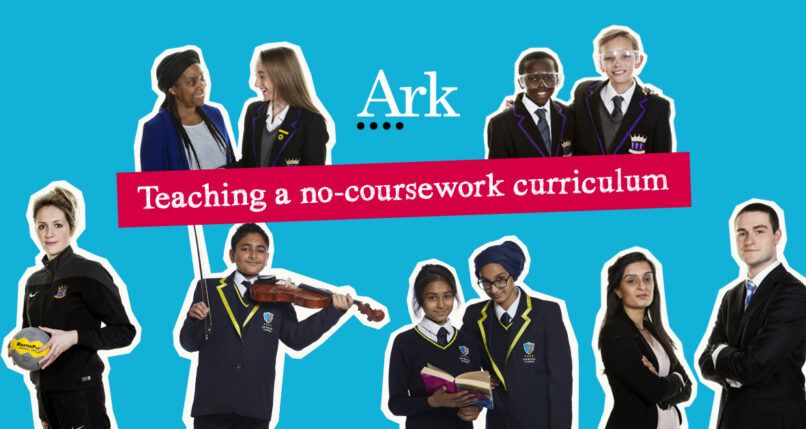This week, teachers from across the country will be at Ark St Alban’s Academy, discussing the change to ‘no-coursework’ GCSEs as part of Ark’s free CPD workshop on the topic. The workshops, which are open to all teachers regardless of whether they work in an Ark school, will see teachers hear from expert speakers on the changes – including Mark Critchard, Ark’s Network Lead for Maths.
In this blog, Mark considers the implications of a linear curriculum – and suggests 6 points for how to tackle the changes.
The move to a linear assessment framework approach means that we are privileged to have more time for learning in each of our subjects. But how should we use this extra learning time? What could we be doing to support students’ attempts to succeed in a linear world? The following 6 tips might help us to think around our pupils’ long term content retention.
Tip 1 – Plan a linear syllabus which suits students’ deep understanding
A linear curriculum map presents us with more freedom around the order of delivering units, the time spent on topics, and most importantly how to interlink the learning of particular knowledge and skills. Not only should ‘easier’ topics precede more difficult ones, it is important that prerequisite skills build into key learning opportunities. The Mathematics Mastery curriculum map, for example, is designed around the tenet of ‘depth before breadth’, whilst maintaining a cumulative curriculum structure that allows for key principles to build on one another.
Tip 2 – Rigorous Formative Assessment is Key
Regular feedback for students and teachers is a great opportunity to track progress without the distractions of unit examinations, retakes and mocks. Ark’s assessment model distinguishes clearly between the formative and the summative, and sees the importance of regular understanding checks to see if students have understood what has been taught. Weekly 10/10 quizzes, topic and unit tests, and in class assessment help us build a detailed understanding of next steps for our students. Indeed, a weekly quiz lagged by a week will give a clear indication as to what has been retained, as opposed to digested and regurgitated.
Tip 3 – Measure progress through cumulative termly assessment
“The aim of all instruction is to alter long-term memory. If nothing has changed in long-term memory, nothing has been learned.” In moving towards a life after levels, it’s a good idea to report termly 0-9 grades, based on a cumulative assessment model. As such, an emphasis on how students retain understanding from previous terms’ work is vital. This leads us to …
Tip 4 – Regularly support recall of ‘lagged’ content
Linear syllabuses also make revisiting topics possible. Learners’ understanding of a topic is often improved enormously when they are given the opportunity to revisit that topic. This can beachieved in several ways:
- By approaching the topic through different issues and questions from those used when it was first covered
- By exploring its links with other topics in the syllabus
- By exploring it at a higher conceptual level. Revisiting is especially important for topics covered in the first year of the course. Learners’ level of understanding of a topic will often be fixed at the level they were operating at when they covered that topic. Once their conceptual understanding has developed, it is likely that a ‘revisit’ to a topic later in the course will develop a more sophisticated grasp of the topic.
Tip 5 –Distributive Practice
What do Nigel Owens, Hermann Ebbinghaus and Ark Mathematics have in common? Distributive Practice. That’s right – use it or lose it. If students don’t engage with content in our long term memory, it will fade through disuse. Think about how often we use Do Now activities to reflect on previous learning, or indeed when we throw in a curve ball to force students into linking curriculum areas.
Tip 6 – Support Students’ transfer of knowledge from their long-term memory
Roediger, Putnam and Smith (2011) argue 10 ways in which testing can support retrieval practice. How can we use this to our advantage? Setting up “Walking Talking Mocks” can not only model perfect exam technique for students, but it can also help them perform in high stakes scenarios. Can revision in the exam hall do the same?
Tickets for Ark’s next free CPD session – on Teaching a No-Coursework Curriculum – are currently available from the Ark website.
